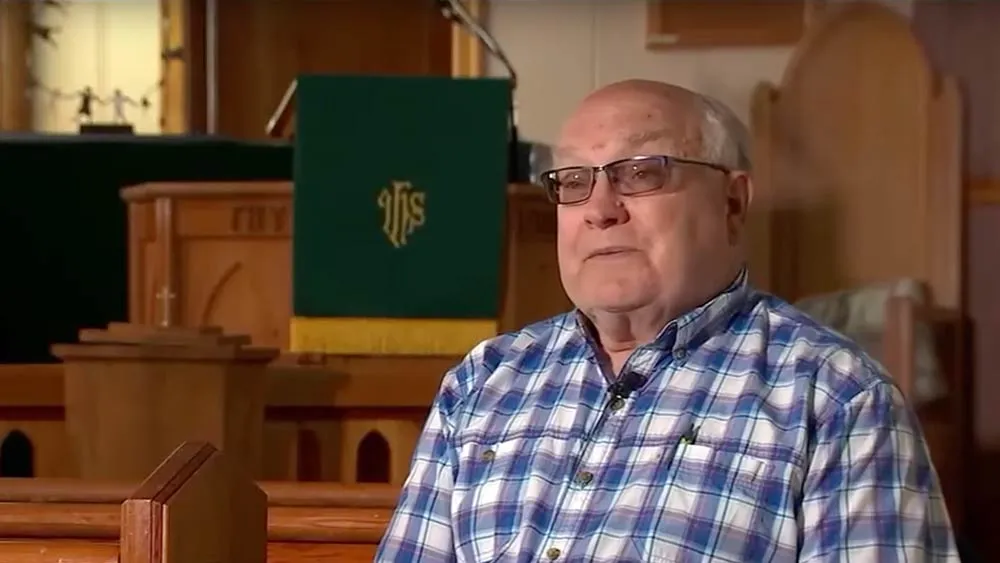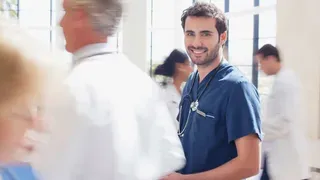October 29, 2017
Shedding Light On The Lies: 'Conversion Therapy' Survivor Exposes Threats to LGBT Youth
Tucker Berardi READ TIME: 4 MIN.
Jose Vega was born in Puerto Rico and raised in a strict Pentecostal home. He and his family went to church three, sometimes four days a week. His family moved to Gainesville and at 17 years of age Vega told his pastor he was gay, a disclosure that resulted in five years of conversion therapy.
"Being gay would have never been accepted in my house. My family was very devout - we went to church three to four times a week," Vega said. "We didn't socialize outside of the church; that was it"
Conversion therapy, often called reparative therapy, is the attempt to "fix" someone's sexual orientation or gender identity through the use of a number of therapeutic methods. Many organizations, including the American Psychological Association have denounced the practice and many cities in South Florida and states across the US have banned licensed professionals from practicing the therapy on minors.
Those bans do not affect unlicensed and religious practitioners, however - leaving children in a situation like Vega's unprotected.
"I went to therapy from my church, [a ban] wouldn't have helped me," Vega said. "I think conversion therapy is a very damaging practice but I feel that a lot of people don't understand what the practice is, how damaging it can be, and that it is happening here in Gainesville, right now."
Vega spent his childhood in church and could never escape the homophobic sentiment. It was in his home and in all of his social circles. Being gay was a taboo in his congregation - in a religion that considers all sins as "equal," homosexuality seemed to be especially unforgivable.
"I genuinely believed that God would be enough," Vega said. "I hated being gay. They equated it to being alcoholic ... as long as you weren't near or consume alcohol you're fine, it's a temptation. So as long as you never accept the fact that you're gay you'll be fine."
Vega said he has put in hundreds of hours of praying, reading the bible, weekend retreats meant to cleanse him, and even multiple exorcism attempts.
After a mix of therapy from a religious therapist and a licensed professional - to whom he paid $100 an hour to "fix" him - Vega and his then-fianc� were finally assured that he was cured of his homosexuality. Vega was married for ten years and had two children before he finally came to terms with his sexuality and decided to come out of the closet.
"I just carried so much shame this entire life," Vega said. "I'm not going to live like that anymore. How am I going to teach my kids to love themselves, to live their dreams, if I can't even love myself."
For Vega, the song 'Flawless' by Beyonce brought him to tears. "I woke up like this. This Jose is good enough, right now. It took me years to finally admit that. I looked myself in the mirror and said, 'you don't have to change, you're good enough.'"
Rachel Needle, a licensed psychologist and member of the Palm Beach County Human Rights Council, said that conversion therapy can take a number of forms and has been found to lead to a number of damages in minors including depression, issues with intimacy, drug and alcohol abuse, and suicide.
"Any ethical mental health practitioner should not attempt to cure or repair gender identity or sexual orientation through these scientifically invalid techniques," Needle said. "Attempting to change someone's sexual orientation or gender identity can have a devastating impact on a minor."
For Vega, finally coming out after years of therapy and marriage was not a switched that he just turned on. It has been an arduous process, one that he said has led him through the lowest points in his life.
"When I separated from my ex-wife I went through a huge depression," He said. "I hated myself and was ashamed of who I was. I didn't feel worthy of love. If God can only love me if I changed, and I couldn't change, then God wouldn't love me."
Vega continued, "It got to a point where I wanted to kill myself. The only reason, the only reason I did not commit suicide is because of my two kids. It was not fair to them."
Vega is now working with community leaders in Gainesville to enact a ban on conversion therapy for minors in the city. He said that when he was 17 he was easily impressionable: when his pastor told him he could be cured of his homosexuality, he believed him. Now that he is in his 30's he said he would be much more skeptical.
But he doesn't believe a ban for licensed professionals is enough. When parents who truly believe that homosexuality or gender identity is an affliction that can be cured they will find someone who is offering a cure, even if they are initially turned down. Vega believes more should be done to educate the public, and more safe spaces need to be established for the kids who feel isolated.
"Parents want what is best for their kids, but they need to be aware of what these practices are having, what their implications are," Vega said.
He continued, "The amount of conversion therapy going on around here would astound people. There are so many churches who do not accept that being gay is ok and they are constantly reasserting those negative messages. That in itself is a form of conversion therapy, constant exposure to those messages can have an effect on people."
Vega, along with the Human Rights Council of North Central Florida and other community leaders, is working to enact the ban in Gainesville, and Vega is devoting himself to a platform of advocacy. He said that every day is a struggle for him, but each time he shares his story he feels freer - he is shedding light and exposing the lies he has been telling himself.
"In the beginning, I was reluctant to share, but at the end of the day that's the only way to bring change," He said. "I hope this [ban] transcends into more than just minors in licensed offices. I went to therapy from my church, this wouldn't have helped me. But if we educate parents and the community on what this practice actually is, that is a conversation we need to have."




